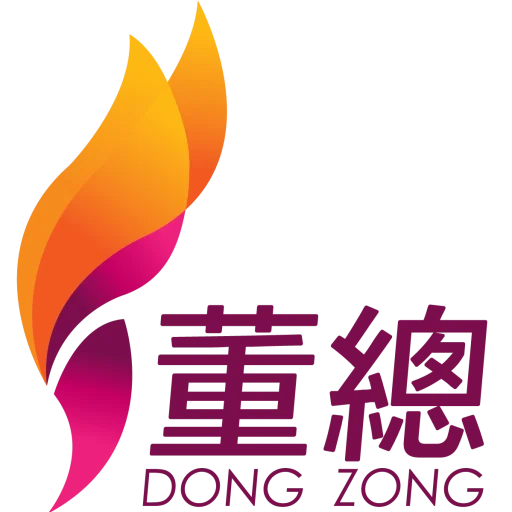Joint Statement Released by Dong Zong and Jiao Zong
November 3, 2022
Dong Jiao Zong Raises Three Educational Reform Proposals—
Policy Debate Is Recommended to Election Candidates
The 15th General Election candidate registration is right around the corner, aside from publicising their election manifestos, Dong Jiao Zong propounds all political alliances or candidates to immediately take part in policy debate to set forth their ruling views and policy claim publicly; their manifestos are expected to be generated in the light of a multiple, equal and compassionate framework, aiming to equally and reasonably distribute national education resources. Concurrently, all walks of life are encouraged to cast their vote to decide the future of the nation.
Though the first party alternation was realised four years back, unfortunately attributed to unforeseen political upheaval, the government had experienced three rounds of power transition thereafter. As it goes, authoritarianism lingers, democratic transition is thwarted, racism besets and conflicts are yet to be addressed. The fight between unitary and diverse system is an imminent challenge in a multiracial country, let alone at times its political direction is at the mercy of populism. For upward mobility but not degradation for a new political culture reinvention, prerequisites like the termination of populistic manipulation, respect for differences, mutual tolerance and compassion must be in place.
The periodic election in democratic countries is one of social contract relation when candidates forward their political views and honour promises upon mandate. Yet, election is the moment where track record is manifested, vision honoured and it cannot be an abuse of oaths; the candidates thus need to demonstrate their comprehensive vision and be ready for examination and scrutiny. To attain this end, we herewith request all political alliances inclusive of candidates, to partake policy debate in order to elaborate their political narratives for the adherence of rational speculation in general affairs.
In fact, the many educational and rights-related proposals raised by Dong Jiao Zong are yet to be adopted and realised. These proposals were raised and mooted from the educational perspective, and all parties at large are anticipated to take attentive note to honour their manifesto and promises upon mandate:
1. The formulation of a multicultural education policy for mother tongue education assurance
The government is prompted to ruminate “the Education Act 1996” and “Malaysia Education Blueprint 2013-2025” in congruence with the multiplicity inherence of the country; an education policy which respects diversity and tolerates difference coexistence is proposed to replace the operating unitary system which endangers the sustainability of diverse mother tongue education.
We opine, the government needs to annex the “mother tongue article” in the Constitution, to proactively promote and publicise multiculturalism, let alone taking mother tongue education as its prominent cultural heritage; it likewise should not deprive civil rights, besides equal treatment on the preservation and advancement of languages and culture of diverse ethnic groups. In addition, the governing body is looking forward to realistically reflecting and disseminating historical reality, apart from recognising the contributions heralded by different ethnic groups over the decades. These acts will help to ramp up ethnic relation, consolidate social coherence in bid to leverage the advantages of multiplicity and maximise prosperity.
2. The guarantee of equal education rights for overall educational quality promotion
The government needs to asset from education difference and community density, in line with propositional principle and actual needs to systematically distribute national education resource, safeguard campus safety, uphold the quality and quantity of teaching and pedagogical aids, consummate teacher education and postings, to holistically promote education quality while comprehensively upholding national forte.
The government is told to redress the ills plaguing society and suggest possible cures, in order to assure fair educational resources and opportunities for all ethnic groups and students, including the adherence of fund provision to national schools and government-subsidised schools referring merely to their “land entitlement” status; reasonable and equal appropriation for all schools (national primary, vernacular Chinese and Tamil primary, national-type secondary, religion schools, MICSSs, non-profit private higher education institutions inclusive); the systematisation of land provision, appropriation, relocation and construction for all streams of schools; the establishment of scientific and transparent teacher education and posting mechanism to assure the accreditation status of vocational schools and teacher qualification; the appraisal and recognition of the UEC from a professional view point; the resumption of the legal status of national-type secondary schools and the promise for development assistance; the provision of tax preference package to encourage contributions from non-profit private education institutions; and finally, the enhancement of multicultural breadth and depth in secondary civic education curriculum.
3. Education decentralisation to be in place and the eradication of excessive political interference and power abuse
To decentralise education, the government needs to formulate policies, guidelines and monitor educational administration at all levels. For the realisation of localised education reform, the state government needs to own educational and administrative power to be accountable for all educational institutions within the state, districts and communities.
The government needs to set up a legalised national supervisory commission of education and ensure its independency, besides its responsibility towards the parliament and submission of annual report; it is for an effective supervision of the execution power and operation of the MOE, as well as governance efficiency to prevent injustice and inadequacy generated from power abuse and political interference. The general public can always speak out to the commission in case of mismanagement, administrative illegality, injustice, discrimination, power abuse, reply ignorance, information provision refusal and unreasonable delay, etc.
Diversity equality is a global trend, it is likewise an important index of the core value and openness of a democratic country. As the government of Malaysia—a multicultural nation—attention should be geared to its diversity inherence, not to mention taking world trend into consideration by viewing the many languages and cultures of the country as a valued asset. It can be achieved through fair treatment in mother tongue education towards all ethnic groups, the promotion of education reform efficiency, the seeking of competitive advantage, the prevention of political interference in education matters and let education be in its professional course to meet world demands in order to create benefits for the nation.
As a last note, citizens of diverse ethnicity are reminded to show their full support towards any political alliance, party member of parliament or state assemblyman who embraces multiculturalism and equal education for the country. Hopefully, civic rights and responsibility can be observed in the making of a new government—one which brings about democracy, freedom, probity, impartiality, diversity and unity to the nation.

